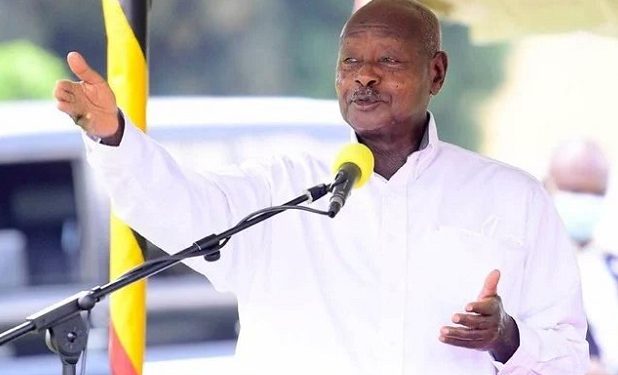By Peril Writer
In a profound move to safeguard the dignity and rights of Ugandan citizens, President Yoweri Museveni, Chairman of the ruling National Resistance Movement (NRM) Party, has taken decisive action. His directive to the Attorney General to draft legislation prohibiting money lenders from exploiting National Identification Cards (IDs) as loan collateral marks a pivotal moment in Uganda’s pursuit of justice and equality.
The genesis of this directive lies in the conscientious reporting by the NRM party secretariat on the recent registration process. During a meeting at State House Entebbe, Secretary-General Rt Hon Richard Twodong unveiled a troubling reality: the unlawful practice of money lenders confiscating National IDs from Ugandans in exchange for loans. This revelation pierced the conscience of President Museveni, igniting a fervent determination to rectify this injustice.
The implications of this exploitative practice are profound and multifaceted. Not only does it undermine the sanctity of personal identification documents, but it also perpetuates a cycle of vulnerability and dependency among marginalized communities. Imagine a single mother, striving to secure a loan for her child’s education, coerced into surrendering her only form of identification as collateral. Her identity, her dignity, reduced to a bargaining chip in the hands of unscrupulous lenders.
This directive transcends mere legislation; it is a moral imperative. It reaffirms Uganda’s commitment to upholding the fundamental rights enshrined in its constitution and international conventions. By unequivocally denouncing the exploitation of citizens’ vulnerabilities, President Museveni sends a resounding message: in Uganda, human dignity is non-negotiable.
The urgency of this directive cannot be overstated. Time and again, we have witnessed the harrowing consequences of unchecked exploitation. Consider the case of vulnerable populations, such as refugees or internally displaced persons, who lack access to formal banking services. For them, National IDs are not just symbols of citizenship; they are lifelines in a sea of uncertainty. To subject them to predatory lending practices is not just unethical; it is an affront to their inherent dignity.
The parallels with past injustices are stark. Throughout history, marginalized communities have been systematically exploited for economic gain. From indentured servitude to modern-day debt bondage, the commodification of human identity has been a recurring theme. In Uganda, as in countless other nations, the struggle for economic justice is intrinsically linked to the struggle for human rights.
Yet, amidst the darkness, there shines a beacon of hope: the unwavering resolve of the Ugandan people and their leadership to confront injustice head-on. President Museveni’s directive is a testament to this collective determination. It is a declaration that the voices of the marginalized will no longer be silenced, that their dignity will no longer be trampled upon.
But legislative reform is just the first step on the path to justice. True change requires a paradigm shift in societal attitudes and behaviors. It demands a reimagining of the relationship between lenders and borrowers, grounded in principles of mutual respect and empowerment. It calls upon financial institutions to embrace inclusive lending practices that prioritize the well-being of borrowers over profit margins.
In this journey towards a more just and equitable society, every citizen has a role to play. Whether as policymakers, activists, or everyday individuals, we each possess the power to effect positive change. Let us stand in solidarity with the vulnerable, let us champion their cause as our own. For in the pursuit of justice, there can be no bystanders, only allies in the fight for a better world.
As we reflect on President Museveni’s directive, let us remember the words of Nelson Mandela: “To deny people their human rights is to challenge their very humanity.” Let us heed this call to action, let us uphold the dignity and rights of all Ugandan citizens, regardless of their socio-economic status. Only then can we truly claim victory in the battle for justice and equality.







Discussion about this post